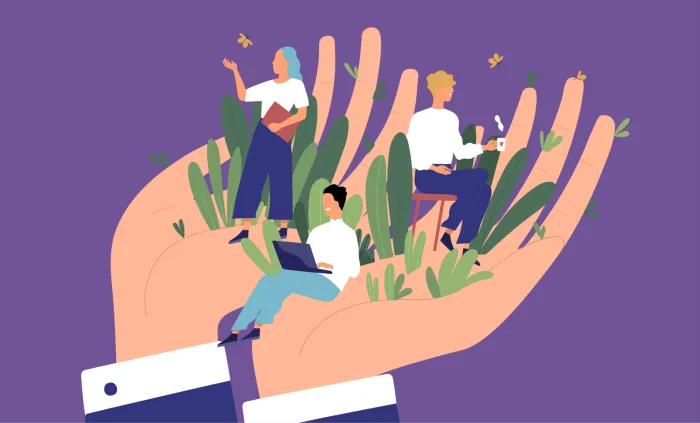What is a company’s culture?
As the IT industry and the people within it mature, there is a greater emphasis and attention to the effort an organization expends in building a work environment that is conducive for transparency, free thinking and creativity.
But what is a company’s culture? In my view, it is an organizations’s set of values, attributes and characteristics. It is the manner in which a company conducts itself and enables its people, provides a safe space so that people’s voices and opinions find outlet in day-to-day matters. I would go so far as to say that culture is the soul of an organization. It is just as valuable, if not more, as the nature of work and the compensation of an individual.
From my experience, company culture should ideally lean heavily on trust, respect and providing agency to people to participate in the decision-making process. I further feel that a flat organizational structure is an essential ingredient in fostering a great culture; removing management layers encourages creativity, opens communication channels and harbours transparency — all of which adds up to people experiencing a heightened sense of ownership.
Why does it matter?
A plant that blossoms and bear fruits has been watered religiously and cared for. The more an organization invests in an individual’s growth and well-being, greater is the likelihood that the person will be self-motivated and work effectively without any supervision. Further, if openness and candid conversations are encouraged, challenging the status quo becomes second nature, leading to honest evaluation and eventually, evolution. This spills over to work and its many intricacies; approaching a problem not with a technology mindset but a solutioning mindset, having the support and freedom to try new things and discover the breadth of one’s potential.

It has been almost 2.5 years since I started working at Sahaj. I consider myself fortunate to have started my career here. At work, in addition to client projects, I have been involved in a host of activities that required a lot of decision-making and what seemed like a daunting task at first, has become second nature to me.
During the initial phase of the pandemic, I was amazed when everyone’s thoughts, including freshers, was taken into consideration for making a decision about pay hikes instead of simply imposing a decision on people. I felt an unprecedented sense of ownership. Recently, as part of a marketing campaign in Nagpur, I appeared on hoardings as the face of Sahaj, among other individuals. Even though I am surrounded by professionals in this company with over decades of experience, I have always felt equally valued — this sentiment right here is the legacy of Sahaj’s culture and it is irreplaceable.



